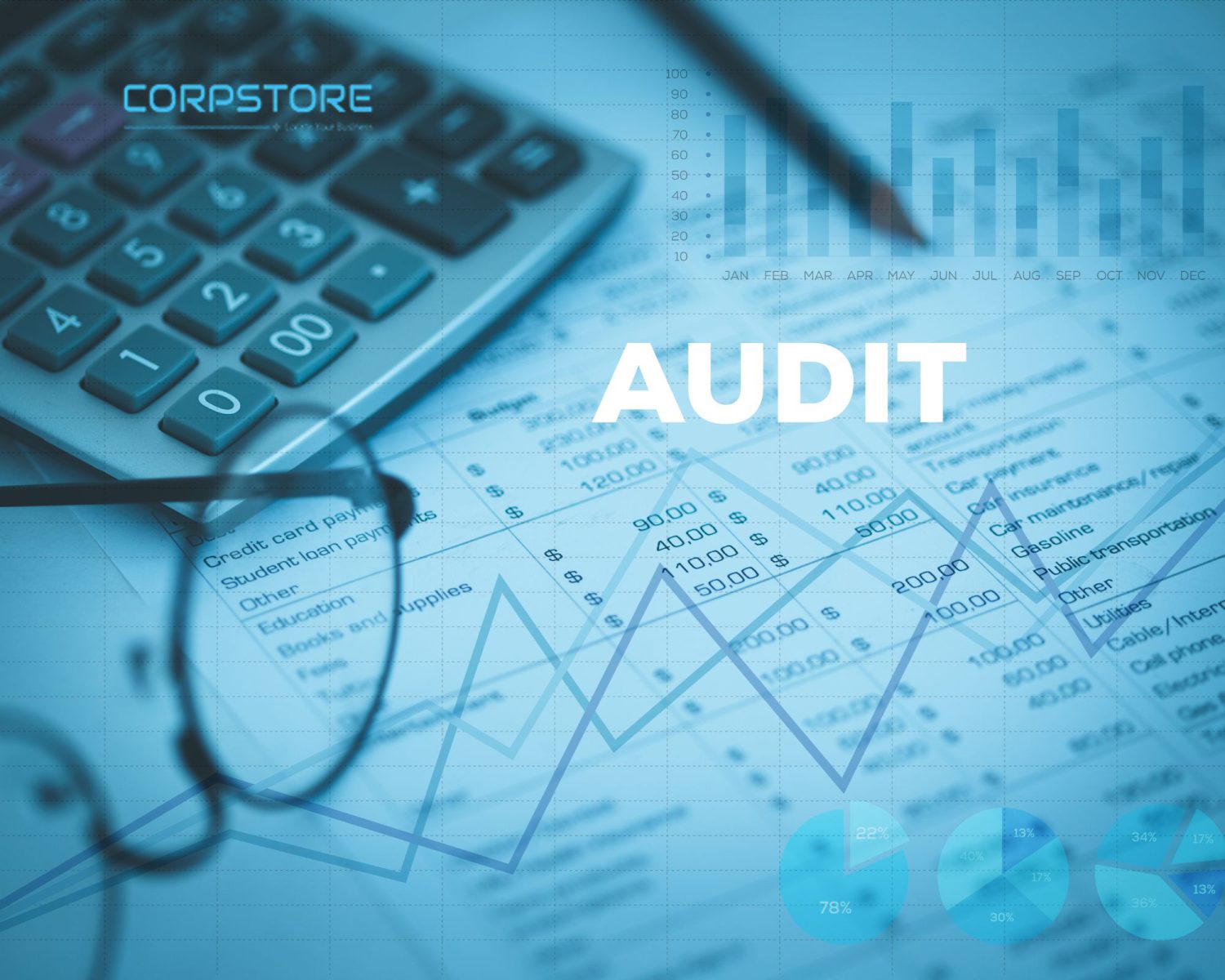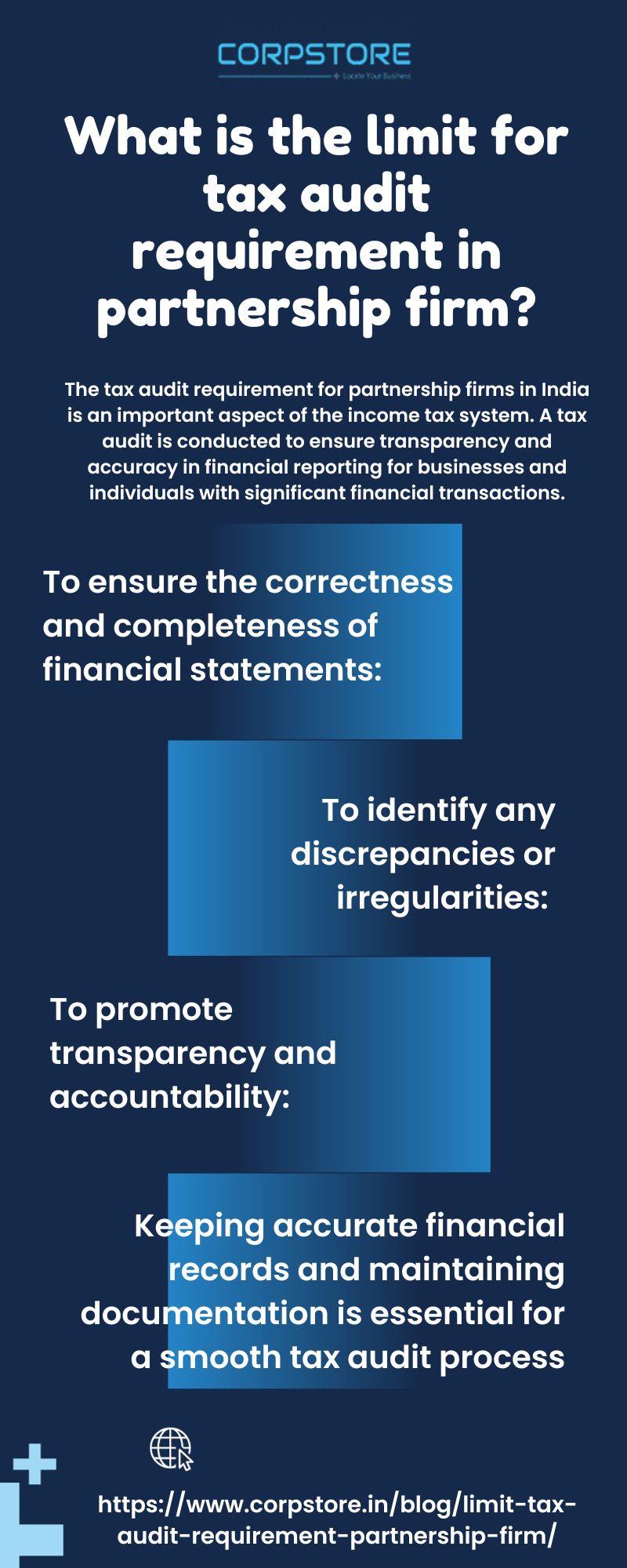The tax audit requirement for partnership firms in India is an important aspect of the income tax system. A tax audit is conducted to ensure transparency and accuracy in financial reporting for businesses and individuals with significant financial transactions.
In this comprehensive guide, we will focus on the tax audit requirement for partnership firms, discussing the applicable limits, the process, and the implications for taxpayers.
Tax Audit in India
In India, a tax audit is governed by the provisions of the Income Tax Act, 1961. It is essentially a comprehensive examination of a taxpayer’s financial accounts and statements by a qualified chartered accountant. The primary objectives of a tax audit are as follows:
To ensure the correctness and completeness of financial statements:
Tax authorities want to verify that the financial statements presented by taxpayers accurately represent their financial position and income.
To identify any discrepancies or irregularities:
A tax audit helps to identify any discrepancies, omissions, or irregularities in the financial records that could result in underreporting of income or incorrect deductions.
To promote transparency and accountability:
By conducting tax audits, the government aims to promote transparency in financial reporting and reduce tax evasion.
Applicable Provisions and Sections:
The tax audit requirement for partnership firms with Partnership firm registration in Bangalore is primarily governed by Section 44AB of the Income Tax Act, 1961. Section 44AB specifies the types of taxpayers and businesses that are required to undergo a tax audit and the criteria for applicability. The provisions of this section can be categorized into the following segments:
Businesses:
Section 44AB specifies that any person carrying on a business is required to get their accounts audited if the total sales, turnover, or gross receipts during the previous financial year exceed the prescribed limit.
Professionals:
For professionals like doctors, lawyers, and chartered accountants, a tax audit is mandatory if their gross receipts exceed the prescribed limit.
Specified Financial Transactions:
In cases where specified financial transactions (like cash payments) exceed a certain threshold, a tax audit is required.
Tax Audit Limits for Partnership Firms:
The tax audit limits for partnership firms with Partnership firm registration in Bangalore are determined based on the total sales, turnover, or gross receipts during the previous financial year. As of my last knowledge update in January 2022, the prescribed limits for tax audit were as follows:
Partnership Firms:
If the total sales, turnover, or gross receipts of a partnership firm exceed ₹2 crores in the previous financial year, a tax audit is required.
It’s essential to note that these limits might change over time, and it’s important to verify the latest limits from official sources or consult with a qualified tax professional. The government can revise these limits through budget announcements or other notifications.
When is a Tax Audit Required for Partnership Firms?
The tax audit requirement for partnership firms arises when they exceed the prescribed limits for total sales, turnover, or gross receipts during the previous financial year. Let’s see in detail.
Partnership Firms:
If the total sales, turnover, or gross receipts of a partnership firm with Partnership firm registration in Bangalore exceed ₹2 crores in the previous financial year, they are required to undergo a tax audit. This is an important threshold, and partnership firms falling within this limit must comply with the tax audit requirement.
Process of Conducting a Tax Audit for Partnership Firms:
The process of conducting a tax audit for partnership firms is similar to that for other entities and taxpayers. It typically involves the following steps:

Engaging a Chartered Accountant:
The partnership firm with Partnership firm registration in Bangalore must engage a qualified chartered accountant to conduct the tax audit. The chartered accountant will review the financial records, statements, and other relevant documents to ensure compliance with the Income Tax Act.
Preparation and Submission of Tax Audit Report:
The chartered accountant prepares a tax audit report, which includes various details such as the partnership firm’s financial statements, accounting policies, compliance with tax laws, and other relevant information. This report is submitted to the tax authorities.
Filing the Audit Report:
The partnership firm must file the tax audit report along with the income tax return for the relevant assessment year. It’s important to ensure that the tax audit report is filed within the due date prescribed by the tax authorities.
Maintaining Documentation:
It is essential for the partnership firm to maintain proper documentation of the financial records, books of accounts, and supporting documents used for the audit. These documents may be requested by tax authorities for verification.
Implications of a Tax Audit for Partnership Firms:
A tax audit has several implications for partnership firms which has Partnership firm registration in Bangalore.
Important implications are as follows:
Compliance and Reporting:
The primary objective of a tax audit is to ensure compliance with the Income Tax Act and report any discrepancies or non-compliance. Failing to comply with the tax audit requirement can lead to penalties and legal consequences.
Increased Scrutiny:
Once a tax audit is initiated, the financial records of the partnership firm are subject to in-depth scrutiny by the tax authorities. This can lead to additional inquiries and investigations.
Verification of Tax Liabilities:
Tax audits help verify the accuracy of tax liabilities, ensuring that the correct amount of income is reported and that deductions and exemptions are legitimate.
Penalties for Non-Compliance:
Non-compliance with the tax audit requirement can lead to penalties and fines under the Income Tax Act. These penalties can be substantial and can significantly impact the financial position of the partnership firm.
Legal Consequences:
In severe cases of non-compliance or tax evasion, a tax audit can lead to legal consequences, including prosecution and imprisonment.
Conclusion:
The tax audit requirement for partnership firms in India is a crucial aspect of the income tax system, designed to ensure transparency, accuracy, and compliance with tax laws. The tax audit limit for partnership firms was set at ₹2 crores in total sales, turnover, or gross receipts during the previous financial year.
However, it’s essential to verify the latest limits from official sources or consult with a qualified tax professional, as these limits may change.
The process of conducting a tax audit involves engaging a chartered accountant to review financial records and prepare a tax audit report, which must be submitted to the tax authorities along with the income tax return.
Failure to comply with the tax audit requirement can result in penalties, increased scrutiny, and legal consequences.
Partnership firms with Partnership firm registration in Bangalore should stay informed about evolving tax audit requirements and seek professional advice to ensure compliance with the Income Tax Act.
Additionally, keeping accurate financial records and maintaining documentation is essential for a smooth tax audit process and for demonstrating good faith and transparency in financial reporting.




